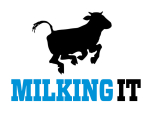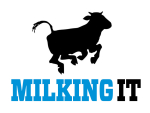“We’re very proud to receive this award. It recognises the effort we’ve put in since our IPO in 2013 to make more from milk, and the success we’ve had as a result of this approach,” said John Penno, managing director and chief executive.
Held in Auckland, the annual Deloitte Top 200 awards celebrate proven excellence in New Zealand business management and governance.
One of three finalists in the category, the judges said Synlait won because of a growth strategy based on selling selected products to leading brands around the world.
“We are a growth company and will continue investing our profit into the business to pursue profitable growth opportunities,” says Penno.
Synlait reported a record profit in the 2016 financial year (FY16) of $34.4 million, a $23.8 million increase on the prior year.
Penno says Synlait’s point of difference is the way they partner with their customers and milk suppliers.
“Partnering with leading global infant formula companies and market disruptors is a key part of our value added focus. Our FY16 profit stems from significant growth in our ingredients and canned infant formula volumes for our customers around the world,” says Penno.
“Our ability to collect and process differentiated milk streams from our 200 Canterbury milk suppliers consistently, and at scale, with some of the most sophisticated production capability in the world creates real value for both our customers and milk suppliers. That’s what’s driving our revenue and profit growth.”
Synlait recently launched their next growth phase, which will see about $300 million invested over three years. In October they raised $97.6 million of new equity and on November 25 they started trading as a dual listed company on the Australian Securities Exchange (ASX).
Finalists are chosen from the Top 200 index, which charts New Zealand companies based on revenue. The index comprises public listed and unlisted companies, New Zealand subsidiaries of multinational companies, cooperatives, societies and state-owned enterprises (SOEs), plus private companies prepared to supply audited accounts.

















